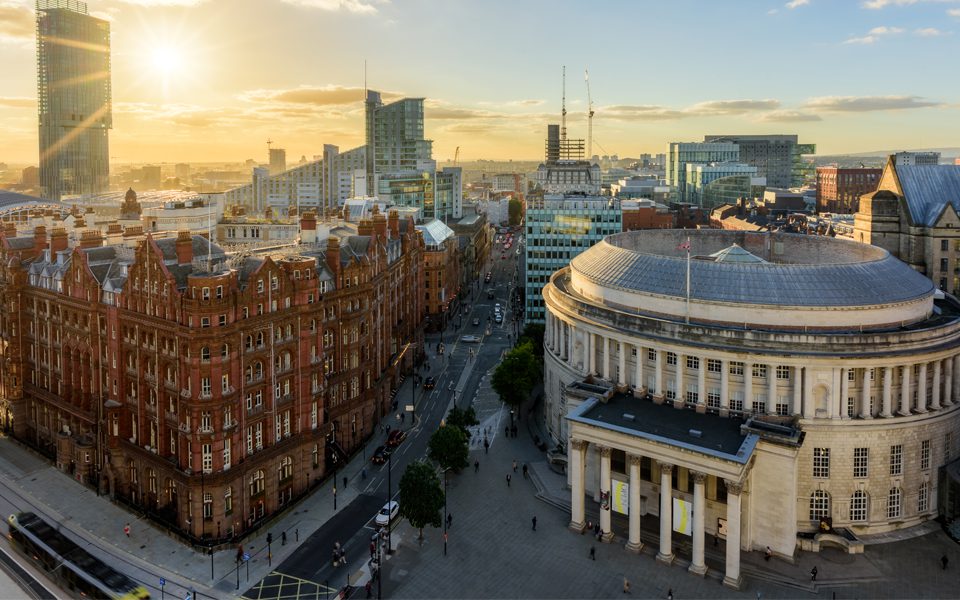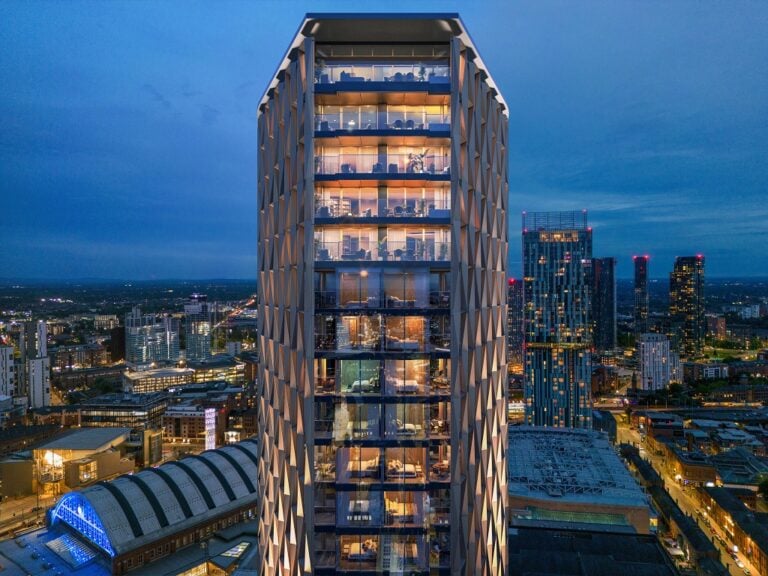Last month, Prime Minister Rishi Sunak scrapped the northern leg of HS2, but property investors still have Manchester in their sights.
The announcement during the Conservative party conference in October certainly came as an unwelcome shock to many who had already made plans linked to the arrival of HS2, which was meant to run north from Birmingham to the likes of Manchester, Leeds and Liverpool.
Now, the line will run only from Birmingham/West Midlands to London Euston, while the £36bn that had been intended for the project has now been promised on some significant spending towards improving transport links across the north of England instead.
With or without a high-speed train link, businesses large and small had already been increasingly moving to or opening offices in many parts of the north, taking advantage of the large talent pool coupled with much cheaper costs. This is one reason why it remains a hugely promising region for property investors at the moment.
Regeneration and investment are also rife in Manchester and Liverpool, as well as other up-and-coming locations such as Stockport, Preston and Bolton on the outskirts of the big cities. As such, the area remains popular among investors, homeowners and tenants alike.
Promised investment in lieu of HS2
The cost of getting HS2 up and running had been undeniably spiralling, which was a major factor behind the government scrapping the northern leg of the scheme. While creating a big saving for the government, Sunak has also promised that around £36bn can now be spent on transport improvements in the north.
This includes around £4bn that will be dedicated towards transport schemes in six northern city regions, with upgraded train lines also set to improve journeys between Manchester and Sheffield, Sheffield and Leeds, Sheffield and Hull, and Hull and Leeds.
A further £12bn is also pledged for delivering a fast link between Liverpool and Manchester, two of the north west’s most significant Powerhouse cities – both of which are already hugely popular among property investors thanks to their low but resilient property prices and strong rental yields.
This project has been coined as ‘Network North’ by the government, with a mission to drive better connectivity between towns, suburbs and cities in the north rather than prioritise travel to the capital with HS2.
A statement from the government said: “More than four million people in cities in the North cannot currently reach their city centre by public transport within half an hour, which is detrimental to productivity and economic growth. And rail accounts for just 8 per cent of distances travelled and 2 per cent of all journeys.
“Yet the HS2 project currently accounts for over one-third of all Government’s transport investments, preventing the Government from spending on people’s genuine priorities and doing little to improve the journeys that people make the most.”
More power to northern towns and cities
Part of the government’s plan also involves empowering Metro Mayors and local authorities to “create the public transport networks that their communities want to see”. Planning reforms have also been promised, to remove barriers to building and ensure projects are delivered quickly.
From a property investment perspective, thanks to the extensive regeneration and investment that has already taken place in and around Manchester – and with the promise of much more on the horizon – there is still an exceptionally high need for places for people to live.
In the private rented sector, demand continues to far outstrip supply in many locations, meaning that competition is high and yields remain strong. This means that despite higher mortgage rates, investors are seeing strong returns in areas like Manchester and Liverpool.
According to Waqar Khan, business development manager for the north west at LendInvest, the likes of Manchester and Liverpool remain key locations for property investors, and the change in direction of the government’s HS2 investment plans “doesn’t undermine the huge amounts of private investment in the area”.
He added: “City hubs like Manchester and Liverpool continue to draw more businesses and jobs to the area, and expanding transport links (Metro Link, Bus services) continue to create investment for regeneration in areas like Stockport and Warrington.
“We’re in the business of homes, be it for renters or homeowners, and while the removal of a national connectivity project like HS2 is a blow, the local benefits to people living and investing there are still very real.”










